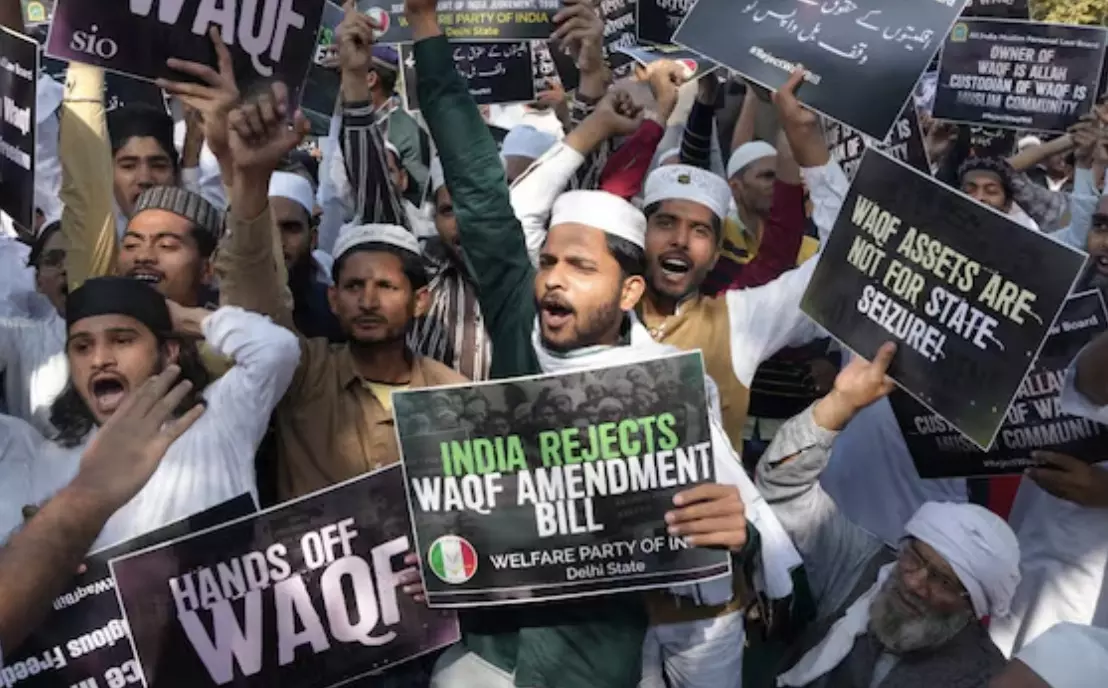Hindu groups move Supreme Court against Waqf act provisions
Hindu groups move Supreme Court against Waqf act provisions

Several Hindu groups have approached the Supreme Court challenging certain provisions of the Waqf Act, 1995, and its recent amendments made through the Waqf (Amendment) Act, 2025. The petitions question the constitutional validity of the Act, claiming that it discriminates against Hindus and threatens their religious and property rights.
The plea, filed by Advocate Hari Shankar Jain and others, was mentioned before the court on Tuesday by Advocate Vishnu Shankar Jain, seeking urgent hearing.
According to the petitioners, some provisions of the Act allow Muslim community members to take over government-owned lands and Hindu religious properties by registering them as Waqf without proper verification or public notice. They argue that this has led to significant misuse of public assets and wrongful classification of Hindu properties.
The plea particularly contests Sections 4 and 5 of the Waqf Act, claiming that these sections do not require a public notice or offer an opportunity for objection before a property is declared as Waqf. This, the petition alleges, makes the process non-transparent and unfair to non-Muslim communities.
Key Demands by the Petitioners:
A declaration that Sections 4 and 5 cannot impact Hindus or non-Muslims.
A government-led initiative to identify and restore Hindu properties wrongly listed as Waqf.
Empowering civil courts to hear grievances raised by Hindus and other non-Muslims against actions under the Act.
Ensuring due legal process, notice, and hearing before any property is registered as Waqf.
About the Waqf Act
The Waqf Act governs the administration of properties donated for religious and charitable purposes within the Muslim community. In 2025, the Act was amended to improve transparency, curb corruption, and streamline the management of Waqf assets. These amendments also allowed for non-Muslim representation on Waqf Boards and increased government oversight.
However, the amendments faced strong opposition from various Muslim organizations and political parties, who claimed that the changes threatened the autonomy of Waqf institutions and the rights of the Muslim community.
Several petitions, including this latest one, have been filed in the Supreme Court challenging the constitutional validity of the amended Act. The court has agreed to consider listing these petitions for hearing.

